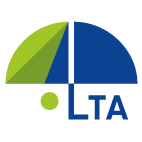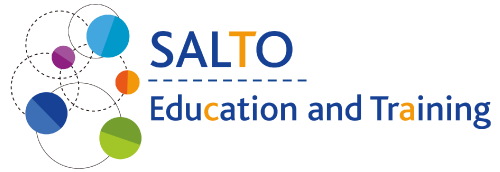The Digital Classroom

Main Info
TCA Description
The ‘Digital Classroom’ Training Course:
•
This training will support
newcomers to integrate digital education into their classroom with a special
focus on eTwinning.
•
The training will focus on
digital opportunities available to students at a European level and discuss the
topic of digital literacy and how best to support students who experience
digital poverty.
Objectives:
- Provide examples of best practice of eTwinning in the integration of digital tools in participants classroom
- Understand how Erasmus+ and eTwinning can support your work.
- To help & support teachers move their schools into a European dimension.
- To provide the space for teachers to discuss the concepts of digital literacy and digital poverty and look at the supports that are available through eTwinning to overcome these.
Outcomes:
•
Participants
will have a clearer knowledge on how Erasmus+ and eTwinning can support digital
work in the classroom.
•
Be
equipped with practical resources and good practice examples to be applied in
their school
•
Those
who are new to eTwinning and Erasmus+ to have confidence to access and apply
digital tools in their classroom.
This is an online event for teachers and staff from primary and secondary schools who are new to eTwinning and Erasmus+ Programme.
The event will be on zoom on the 28th and 29th September at 14.00 to 17.00 GMT each day (3 hours duration each day)
Partners and participants
Teachers
and staff from primary and secondary schools who are new to eTwinning and
Erasmus+
Pending booked places
Accepted places
TCA Participant Application
Long-term Activity Info
Due to rapid technological development and a growing
need for sustainability, digital teaching and learning in education had already
been in focus for a while prior to the pandemic – a paradigm shift towards
digitisation in education was already underway. Current events have accelerated
the paradigm, making way for a new normal. The Covid-19 pandemic and the
physical distancing that followed have affected all walks of society, also
education. In order to keep education running, educational institutions have
had to quickly adapt to the situation. This has resulted in an unprecedented push to digital teaching and
learning.
Digitalisation offers many opportunities, but also presents many challenges. Reinvention is not always a choice. The coronavirus is permanently reshaping the way we live, teach and learn. Some of the behaviours developed in crisis — including wide-scale digital adoption — will outlast the pandemic, well after restrictions on activity are lifted.
Digital transformation in education is more necessary during this crisis, not less. Resources — both in terms of talent and money — will likely be constrained. Digital initiatives may need to be reprioritised based on relevance in the current environment. New problems and opportunities may come to light with greater urgency. Digital transformation roadmaps are needed. It is key to continue to experiment and innovate with digital solutions. It is vital to train target groups to use existing digital methods more effectively and create new ones as well.
The overall aim of this long-term activity is
- to encourage educational institutions across Europe to use lessons learnt during the Covid-19 pandemic, and create state-of-the-art and update existing methodologies for digital learning at individual, community and institutional level; and
- to use them strategically in the future.
- thereby influencing Erasmus+ Programme and policy objectives at national and EU level
We are planning to proceed the topic during the available time frame through seminars and research activites on three levels:
Seminars:
- 1st (individual) level: key actors, teachers, school staff, etc. – aiming to improve digital awareness, skills and competences, to enrich methodology, and to facilitate digital content creation as well as to encourage the use of existing platforms such as e-Twinning, etc.
- 2nd (community) level: networking among teachers in the online space – aiming to facilitate communication and collaboration to be channelled into classroom teaching by learning from one another as well as emphasising the use of existing platforms such as e-Twinning, etc.
- 3rd (institutional) level: school leaders, decision makers – aiming to upscale and support digital transformation into institutional level.
- Research:
Through activities of the LTA 2021-2024, participants are supposed to learn about existing and tested practices that can be incorporated into their own strategies as well as identify possible gaps leading to further and better Erasmus+ projects and encourage the development of state-of-the-art solutions.
LTA continues to welcome any NAs
- wishing to adopt Digital wellbeing programme realized by HU01 to implement in 2022/23 budget year as organizers
- wishing to examine any other aspect of digitization in schools as an organizer,
- or co-organizer/co-financing partner in any other activity implemented by other national agencies,
- or of course as sending participants to any LTA-supported event.
The expected impact of the LTA in ascending order of policy effect:
- Coordinating LTA in Digitalisation with research, events, study visit for quality projects in E+
- Supporting Erasmus+ programme with high quality Digitalisation project
- Exploiting E+ project results in the development of SE actors, institutions in the field of digitalisation
- Upscaling project results to policy level for improving E&T sector


